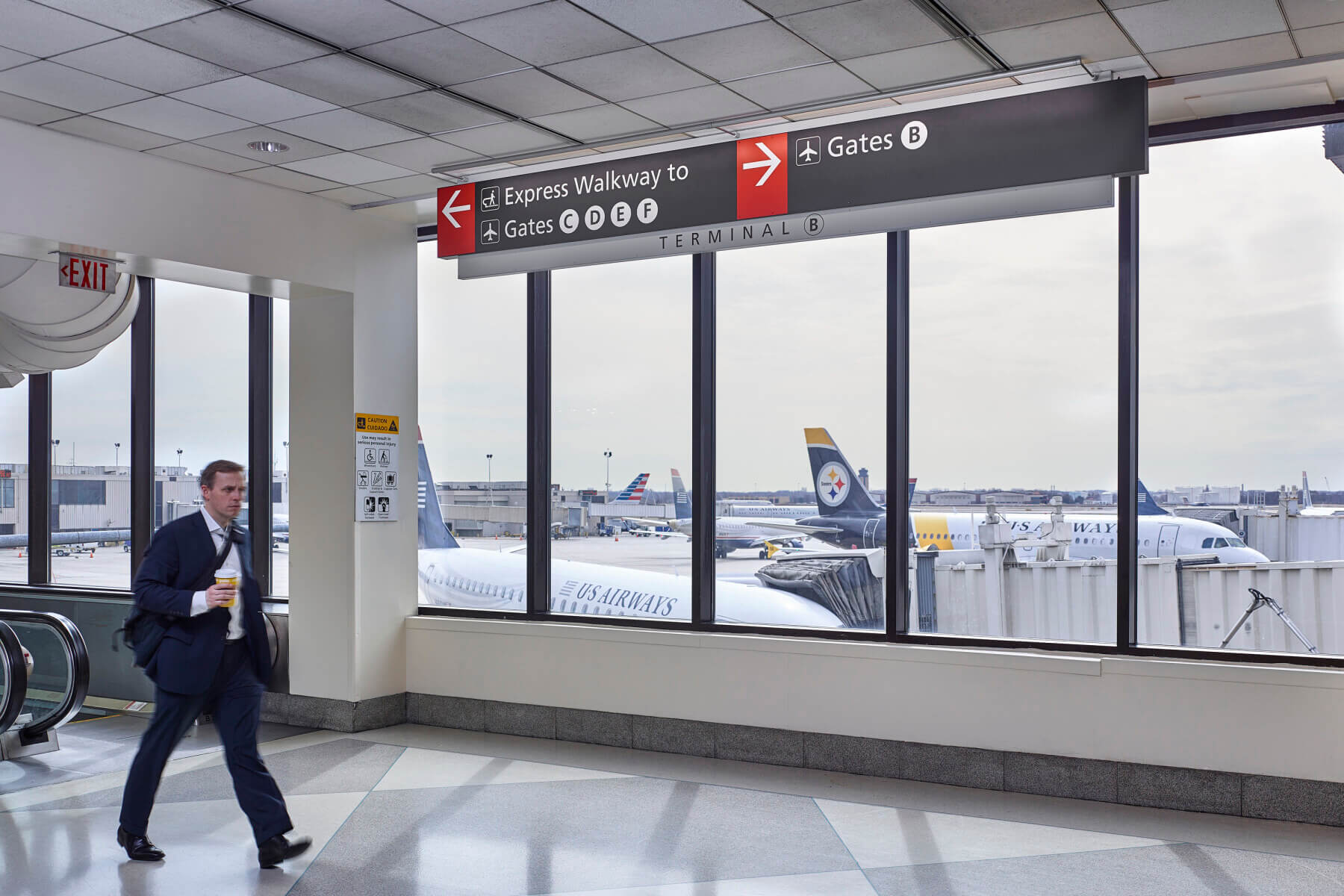An In-Depth Risk Assessment
The firm analyzed nearly every asset at the airport—from the terminal and parking structures to the cargo holds and control tower—to identify the most vulnerable structures and conduct a risk assessment. Gresham Smith also separated the assets into those that will be most affected by flooding from the adjacent Delaware River, and those that will be impacted by wind debris, as well as assigned rankings for sensitivity, adaptive capacity and vulnerability.
Comprehensive, Integrated, Strategic
After the assessment, we developed the CARP, which outlines how all entities at the airport can play a role in promoting climate resiliency. The plan calls for proactively planning for climate risks, integrating resiliency planning into all new projects, and analyzing existing operations and maintenance procedures to address the intensifying weather events. We also included suggestions for immediate actions that can be taken within the next 12 months, such as conducting an inventory of flood protection assets and developing flood proofing standards for existing buildings, and incorporating climate resilience into community outreach efforts.
Talk the Talk, Walk the Walk
To implement the CARP, the firm proposed that PHL create a Climate Resilience Steering Committee to support the airport’s sustainability staff in decision making. The CARP also emphasizes the importance of not only training airport staff on climate-related risks, but also collaborating with community partners and others in the region to promote transparency and accountability about the actions taken to address climate risks.
